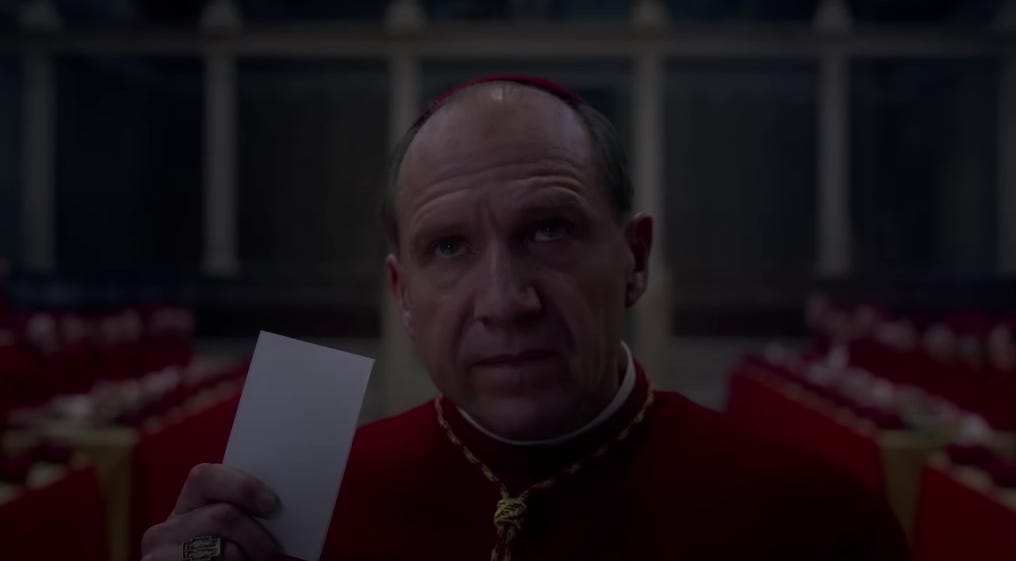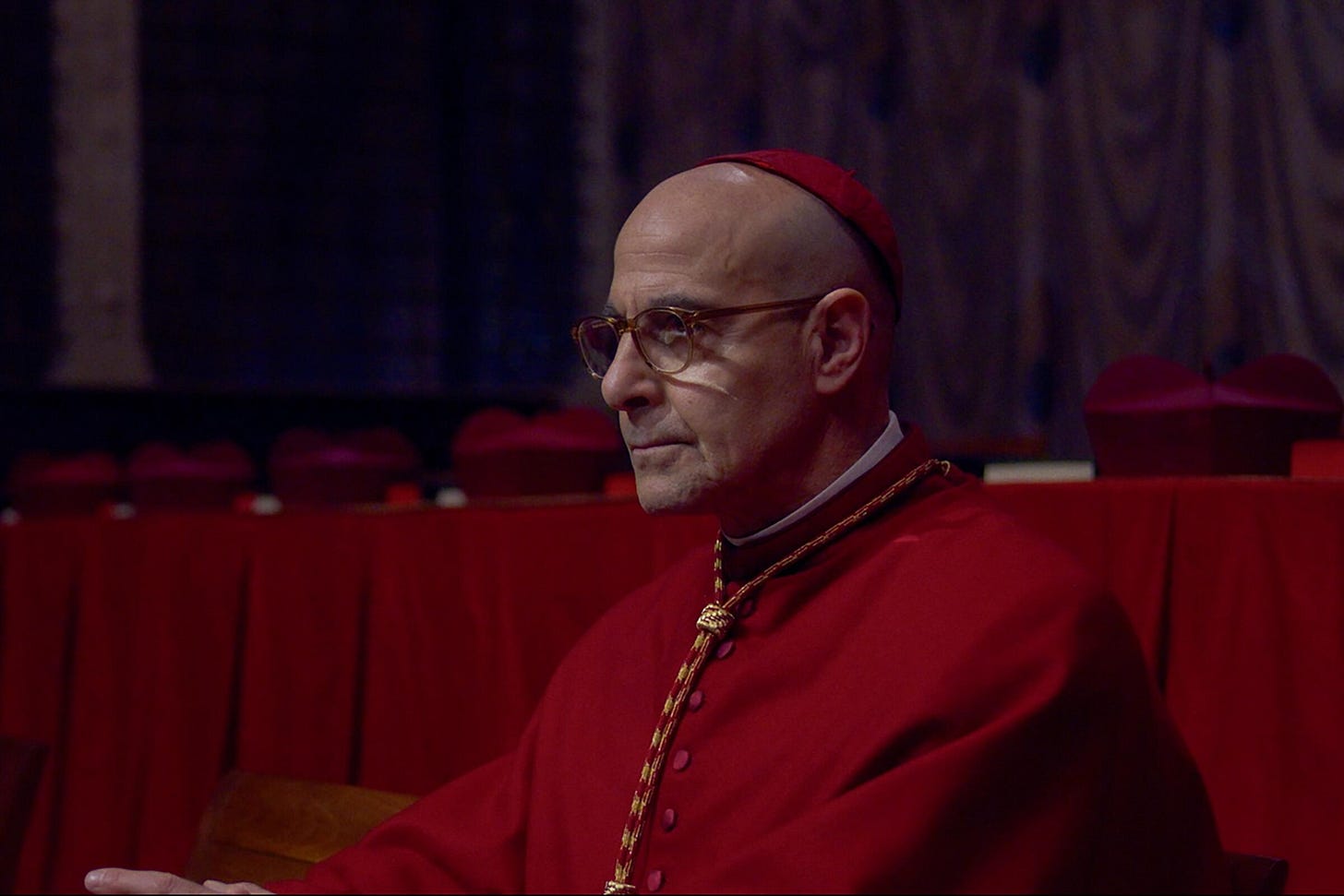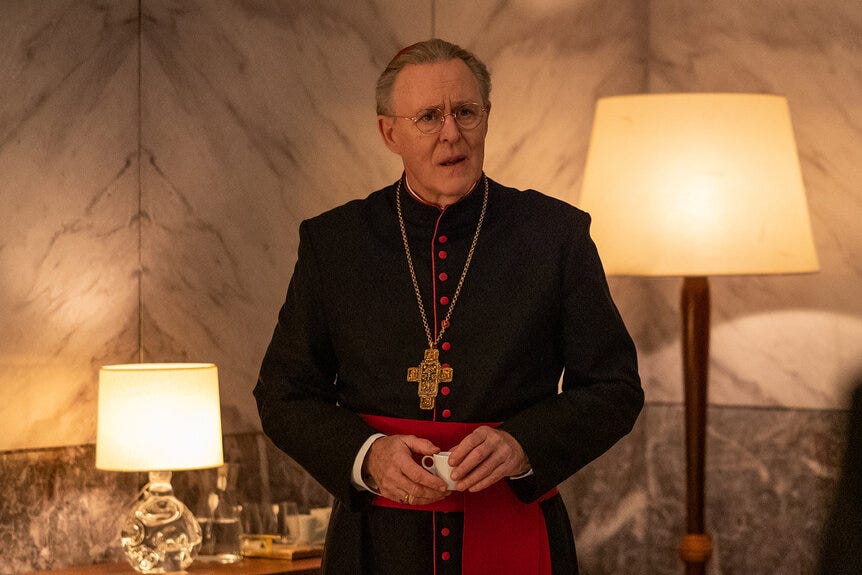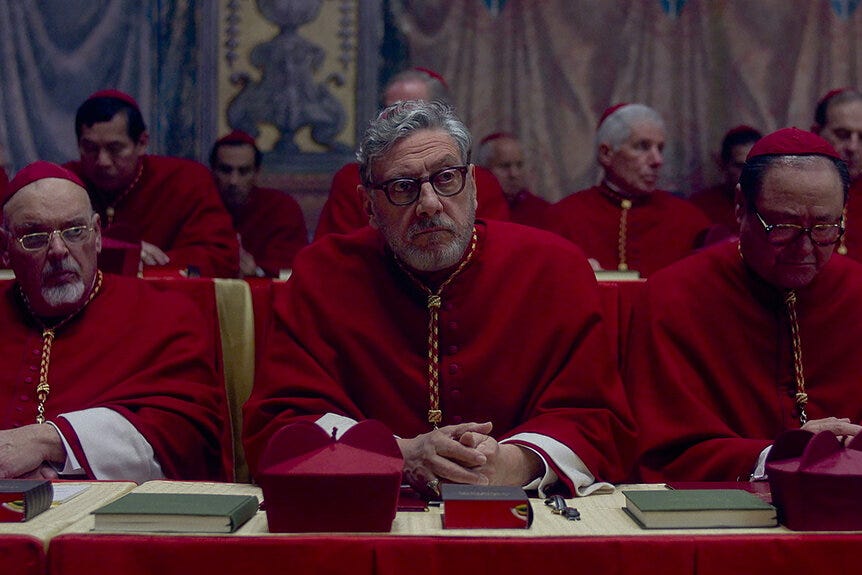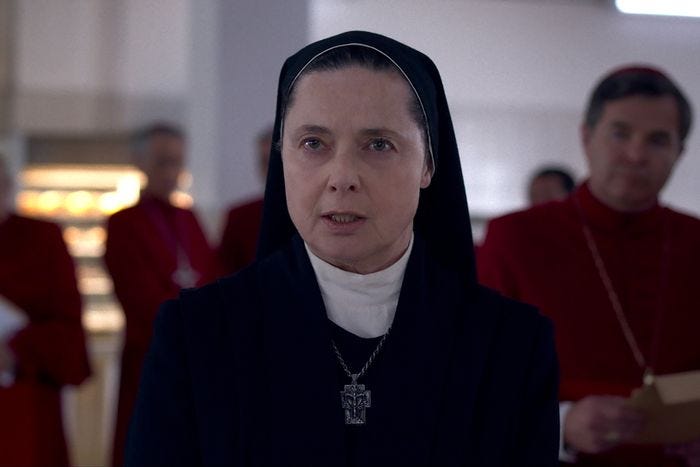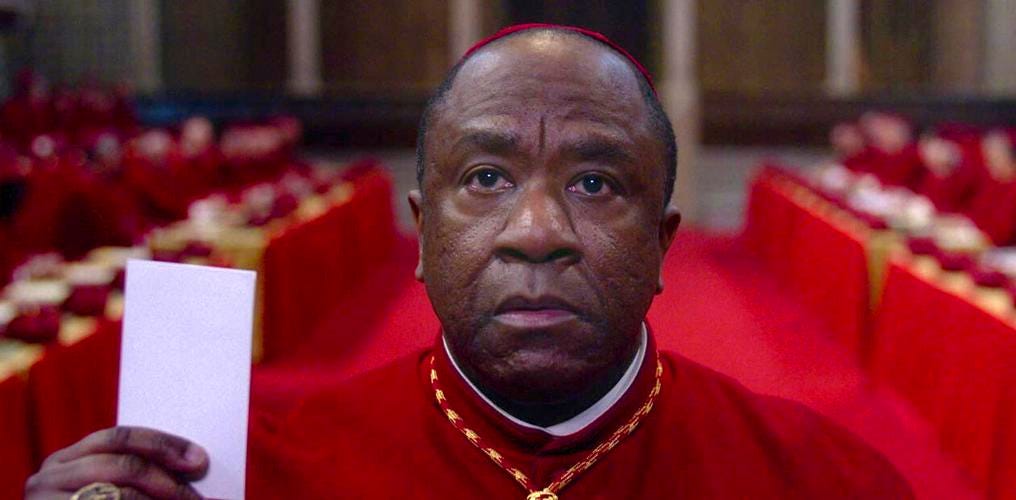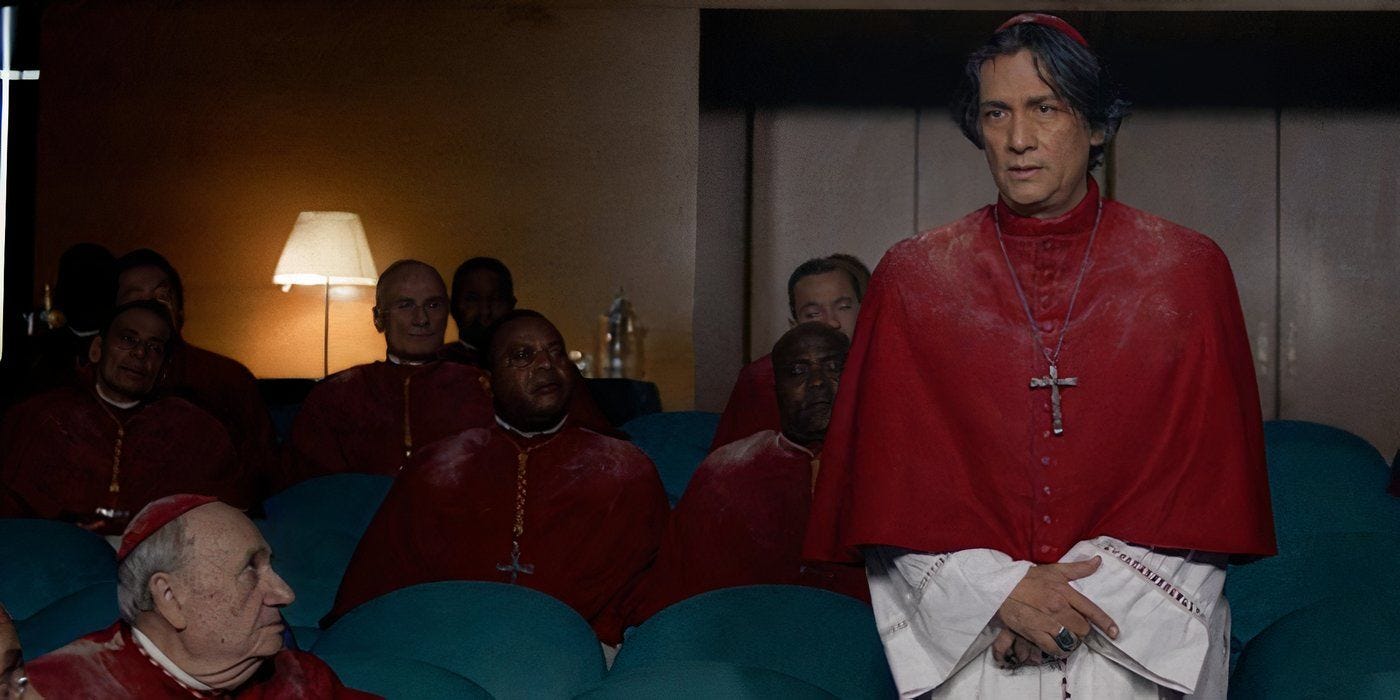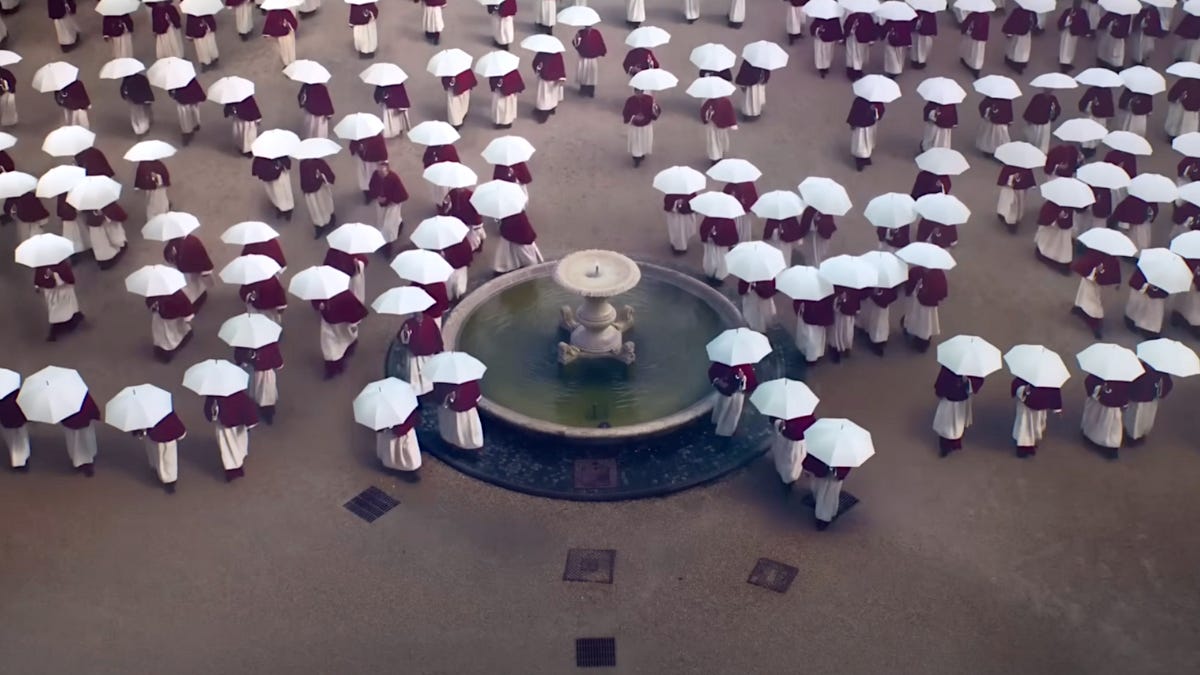I am One Who Doubts
On "Conclave" (2024)
Okay, I usually do not do culture-analysis on here, but I am have so many thoughts about Conclave (2024).
If you do not know: the conclave is how a new pope is selected by the appointed College of Cardinals. Conclave is a dramatization of such and a “Oh, who will be the new pope?” move, not dislike an election drama.
My short review: great character drama, fantastic performances by the actors, and visually gorgeous. But, wow, this is a great example of mixed character writing. And each character in a different way!
So, a week since watching it, I thought I would walk through the characters and give my take on how I think the writing leaves something to be desired for pretty much every character.
This long review and commentary contains a lot of spoilers. Reader beware.
1. Thomas, Cardinal Lawrence
(Played by Ralph Fiennes, aka Lord Voldemort)
Cardinal Lawrence is the main character for a reason. As Dean of the College of Cardinals, Lawrence “the manager” is responsible for the actual execution of the Conclave. The most unbelievable part of the movie: a Brit as the Dean of the College! (Especially given that position was once held in reality by Joseph Ratzinger, aka Pope Benedict XVI, one fondly remembered by the conservatives).
The Good: Lawrence is frustrated as the late pope refused his preceding resignation. “You’re a manager: manage,” is such a perfect line. It is not just that Lawrence is a good literal manager of the conclave: he is also uniquely unambitious and self-doubting, which makes him perfectly position to be the investigator behind the misconduct of his fellow cardinals. He manages the situation, even by committing otherwise scandalous actions.
May we have a pope who doubts.
The Bad: Big spoiler here. Lawrence has no moment of spiritual destruction following his vote for himself. This does not make sense narratively. He resists his own rising candidacy and, the moment he changes his mind to himself, the conclave is disrupted by a literal terrorist attack.
This is similar to an earlier scene in which he breaks the seal of the papal bedroom, but Lawrence, there, does have a brief breakdown. Yet not later?
This is, dramatically, a lost opportunity. Lawrence, so full of doubt, does not become full of doubt after this? No, instead we have possibly the most poorly written scene come immediately after (more on that later). Of any moment in the moment to focus on Lawrence as a person, the moment is lost in a way I find absolutely strange. But, wow, I love Ralph Fiennes in this role.
2. Aldo, Cardinal Bellini
(Played by Stanley Tucci, the pink haired talk show guy in Hunger Games)
This is Americanized Jorge Mario, Cardinal Bergoglio, aka Pope Francis I. He’s a staunch liberal but, unlike Francis I., is also expressly aggressive in his approach.
The Good: He is uncompromising. It is clear why he is the favorite candidate of the liberals (Including Lawrence). But he is also ambitious, as he reveals as the movie goes on. He even projects that onto Lawrence (all the more reason Lawrence should’ve had more of a moment of collapse post-bomb) well throughout the movie. I think this: he’s conflicted inside but still keeps his eye on the prize.
The Bad: Where the hell does he go? Seriously, in multiple scenes, you go: “Wait, that guy would definitely be specifically engaged with this.” Yet he’s largely absent from the cafeteria scene against Tremblay and the argument in the theater after the bombing. Maybe he is intentionally keeping distant, but the movie does not make the intent here clear.
3. John, Cardinal Tremblay
(Played by John Lithgow, aka the softy granddad in Daddy’s Home 2)
Speaking of that cafeteria scene, let’s turn to the biggest dumbass of this movie (in a good way).
The Good: This Canadian dude sucks. Even from the beginning his overly-insisting tone comes off as suspicious. He’s just too dorky and it is clear he’s feinting. He’s clearly trying to appear harmful until confronted directly by Lawrence, resulting in the most emotionally tense moment of the movie. Does Lawrence turn against the moderate in possibly ascendence to the conservative (who we are pushed to dislike by the movie)? He chooses to, as he sees Tremblay as a real threat for the first time.
The Bad: He’s a bit flat. He never see him have a moment of realization, just defeat. Adeyemi (discussed later) does get that moment after his defeat. But Tremblay committed simony! The chaos that results in this scene should have lingered longer, though I understand the director not wanting to drag the already dense story along. That and it is such a good scene, including the moment with the vape god (he who follows).
4. Goffredo, Cardinal Tedesco
(Played by Sergio Castellitto, aka Enzo Ferrari, apparently)
The Good: This guy is hilarious, mainly due to the bit of him occasionally vaping in the background (Amplifying by the fact that nobody else even acknowledges it the whole time). He also is the most emotional, even more than Bellini, which I partially enjoy in contrast to the usual cold, academic depiction given to conservatives in movies like this.
The Bad: This is the character, though, I am the most frustrated by.
Ideologically, his character is just not compelling. The movie just fails to take the conservative position within the Catholic Church seriously. His initial confrontation with Lawrence is marred by him just coming off as racist. His climactic rant against moral relativism (a very real dispute within the church, in those exact terms) is marred by him coming off as just prejudiced against Muslims. He fails to be compelling in the same way as conservatives in the real world are to many Catholics. Ratzinger, discussed earlier, has been floated as a future Doctor of the Church. Yet, we are never invited to feel any pull toward Tedesco.
I would have likely a heavier emphasis on why conservatives feel as they do, about, say, the Latin Rites or the accusation of “moral relativism,” so on. This need not have been longer, but just depicting the conservative voice within the Church as just a bigot makes the movie come off as a bit flat in this regard. Make Tedesco passionate and rational, let him make citations, let him emphasize big principles like the historical traditional and the inheritance from the Saints, so on. Make the argument here, do not just have this be a “Okay, which liberal will win?” story, make this a “Oh, wow, what is the future of the Church to be?” This, I think, is the greatest mistake of the story.
5. Sister Agnes
(Played by Isabella Rossellini, aka Dorothy Vallens from Blue Velvet)
The Good: I have no complaints: her crucial moment in the film makes the message perfectly clear. Women in the church as silent and unheard and, when she does speak, she fundamentally shifts the course of the story. Matches well with the less-well-written moment between Lawrence and the Pope-To-Be, discussed later.
6. Joshua, Cardinal Adeyemi
(Played by Lucian Msamati)
The Good: This is a person. He feels flawed but in a way, unlike the others, the audience is actually moved to connect to, even contrary to his controversial stance on homosexuality. He is the superior version of Tedesco in this regard.
The Bad: He doesn’t engage in the relevant ideological arguments. Just as Tedesco never seriously argues for his position, even, instead, defaming Adeyemi, Adeyemi’s own ideological position is never justified. All we hear is the worst part of his views and without reason given. Again, make him justify himself, make him try to convince others. Yet he never does, all we get is the moment in which “The wind is in his sails.”
What makes me particularly mad, especially given the next character, is that the Nigerian cardinal is largely absent from the one scene in which Islam is mentioned. This is, like, Nigeria’s principle political cleavage! Yet the movie acts like one and only one dude knows what warzones are like. Very, very frustrating.
7. Vincent, Cardinal Benitez
(Played by Carlos Diehz)
The Good: He gives the argument, like Bellini. It is completely one-sided, as his speak comes off as a “Gotcha moment”, but he at least has that moment. He is not a small man, as he says of the College.
The Bad: But he is just hard to take seriously. The idea that serving in warzones is so rare as to render him the sole person to speak here is just plainly ridiculous. That is one of the defining features of, say, the Jesuits. To go the difficult places. Like, Adeyemi is from Nigeria! Not exactly known for its stability! There are real-life cardinals the Philippines, Lebanon, Iraq, Bosnia, and Honduras, just as a few examples.
I really, really dislike that it is implied that it is unusual for the Cardinals not to have experienced really terrible places. It is deeply unserious and the most egregious error the story makes, as it undermines its connection to the real drama of the Church. It renders everyone else as merely ignorant instead of deeply conflicted.
Another big spoiler alert: His intersexuality is not really explained. Some commentary has given mistaken the scene as implying he’s just a biological woman. If the conditional is chromosomal the movie does not say, but the relevant point is that multiple sets of sex organs exist inside of him. The blurry lines.
But it is also wild this moment passes by at the very end. It is, in my view, a bit of a lazy ending twist. I get the idea but, also, it seriously underestimates how disastrous this would be within the Church. It fails to take different perspectives on this. The accusation would, indeed be, that a woman had been made Pope. Like that op-ed I linked above!
Conclusion. One Who Doubts
Overall, I think the movie makes the characters flatter than they should have been. Compared to the book, for example, multiple characters were changed to English-speaking countries, as this conveniently means they can just speak English to each other (as if nearly every Cardinal does not speak some English anyway). I liked the use of Latin and Spanish! I wanted to hear from the French that they just allude to! Oh well.
But, God, they are still really great characters. I did really like this movie and would probably assign it if I was to teach a class on writing dialogue or something. I just think the writing could have done the characters more service, especially given how well the cast did.


